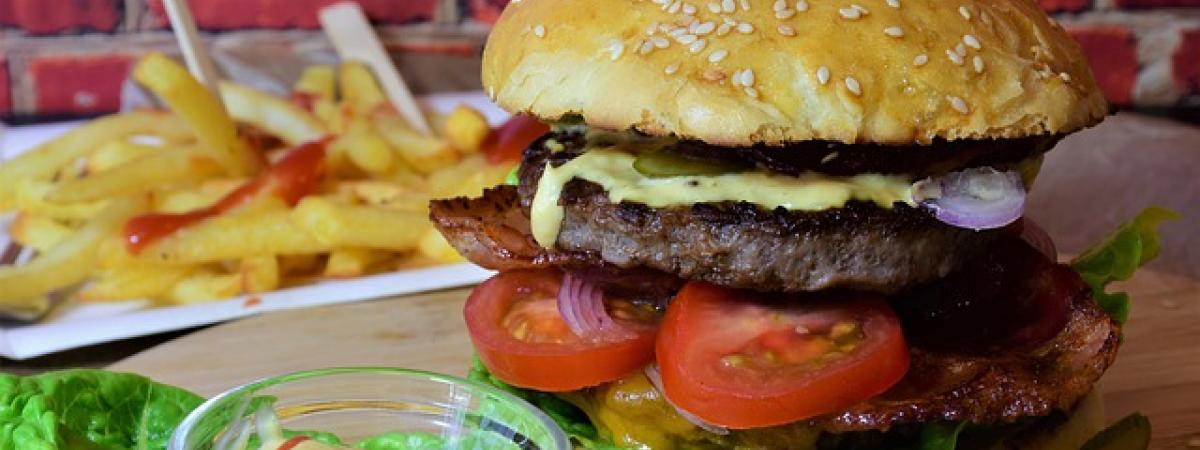Why does junk food make us fat?
published in Reader's Digest,
15 September 2015

A typical junk food meal contains nearly twice as many calories as a traditional British meal. Whether it’s pasties, pizza or pop, there is no doubt that junk food is on the increase, and so are our waistlines.
Are calories the culprit?
“The fundamental cause of obesity” the World Health Organisation says, “is an energy imbalance between calories consumed and calories expended.”
To those who love a slice of cake or occasional hamburger, this is good news, because as long as we use more energy than we take in, no harm will be done. The trouble is we keep coming back for more, until we’ve overdone it.
Take the Mexican diet for example (regularly listed as one of the most obese countries): more than 20% of calories come from junk food in Mexico, with sweet treats such as the ‘Gansito’ snack cake and Coca-Cola being firm favourites.
In the controversial American film ‘Supersize Me’, Morgan Spurlock ate nothing but junk food and packed in the calories to disastrous effect. While not to the same extremity, we are eating too much junk food and so consuming too many calories.
Professor Hebebrand from Essen University in Germany (‘essen’ rather appropriately means ‘to eat’ in German) suggests that “the modern ‘obesogenic’ environment is characterised by the ubiquitous availability of palatable, energy-dense and inexpensive foods.” Junk food is everywhere, it’s cheap and it tastes nice.
In fact, it’s addictive
Surprising research at the National Institute on Drug Abuse has shown that junk food affects the brain in a similar way to cocaine and heroin: hijacking the dopamine system in the brain that is associated with feelings of reward and pleasure. And that’s why we crave junk food, eating more until we’ve eaten too many calories.
Chocoholics really do exist! Food manufacturers know just the right combinations of fat, sugar and salt to maximise the dopamine effect.
Some medicines, such as those for Parkinson’s disease, alter dopamine levels, and dopamine levels fall as we age, affecting appetite. Dopamine really does determine our desire for food.
Once the brain is hooked, there’s a gut reaction
Junk food seems to affect the bowels as well as the brain. Junk food significantly affects the bacterial population in our gut: ten days of a junk food diet eliminates over 1,000 of the 3,500 species of gut bacteria.
Since gut bacteria are among the first cells to encounter and process our food, and play a crucial role in determining what is absorbed and digested, this ‘bacterial blitzing’ will affect what happens to the food we eat, probably leading to weight gain as more is stored as fat.
The bacterial make-up of our gut is thought to be determined by our genes as well as our diet and so some people put weight on despite healthy eating. This is being tested in the simply-named British Gut Project.
The leader of this project, Professor Tim Spector, suggests a diet that is as diverse and natural as possible to fight obesity. We might do well to learn from mid-Victorian times, when fruits, oily fish and vegetables were the staple. Herring not hamburgers; chestnuts not chips.
